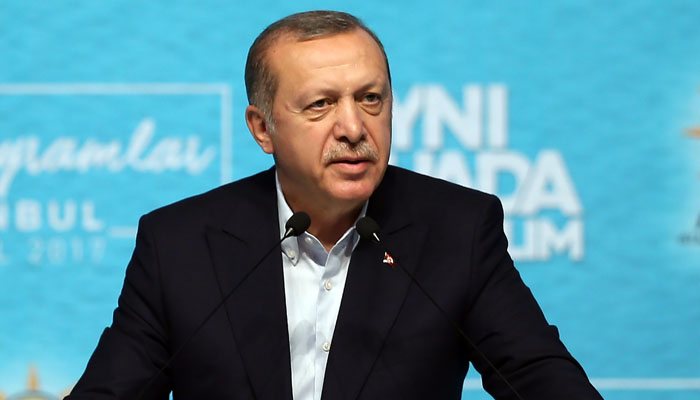Turkish President Recep Tayyip Erdoğan has said he will raise the violence in Myanmar at the United Nations after recently accusing Myanmar of “genocide” as thousands of Rohingya Muslims flee to Bangladesh.
“There is a genocide there. Those who close their eyes to this genocide perpetrated under the cover of democracy are its collaborators,” said Erdoğan in a speech in Istanbul during the Islamic Eid al-Adha feast.
Erdoğan recently telephoned UN Secretary-General Antonio Guterres and urged him to put pressure on the Myanmar government over increasing violence towards Rohingya Muslims in Rakhine state, which has reportedly displaced and killed thousands of them.
According to the state-run Anadolu news agency, Erdoğan told Guterres on the phone that a UN intervention has vital importance in ending the crisis.
Anadolu also reported on Wednesday that Foreign Minister Mevlüt Çavuşoğlu spoke with his Qatari, Indonesian and Malaysian counterparts about the ongoing violence in Myanmar against the Muslim minority in separate phone conversations.
A Reuters report said on Wednesday that more than 18,000 Rohingya Muslims, many sick and some with bullet wounds, have fled the worst violence to grip northwest Myanmar in at least five years, while thousands more are stuck at the Bangladeshi border or scrambling to reach it.
Friday’s series of coordinated attacks by Rohingya insurgents on security forces in the north of Myanmar’s Rakhine state and ensuing clashes triggered the Rohingya exodus, while the government evacuated thousands of Rakhine Buddhists.
Since the attacks, about 18,445 Rohingya – mostly women and children – have registered in Bangladesh, the International Organization for Migration (IOM) said on Wednesday.
“They are in a very, very desperate condition,” said Sanjukta Sahany, who runs the IOM office in the southern town of Cox’s Bazar near the border.
“The biggest needs are food, health services and they need shelter. They need at least some cover, some roofs over their heads.”
Sahany said many crossed “with bullet injuries and burn injuries” and that aid workers reported that some refugees “gave a blank look” when questioned.
“People are traumatized, which is quite visible.”
The United Nations, while condemning the militant attacks, has pressured Myanmar to protect civilian lives without discrimination and appealed to Bangladesh to admit those fleeing the military counteroffensive.
At least 109 people have been killed in the clashes with insurgents, Myanmar says, most of them militants but also members of the security forces and civilians.
The treatment of about 1.1 million Muslim Rohingya in Myanmar is the biggest challenge facing national leader Aung San Suu Kyi, who has been accused by Western critics of not speaking out for a minority that has long complained of persecution.



